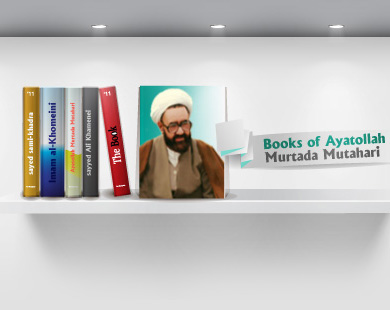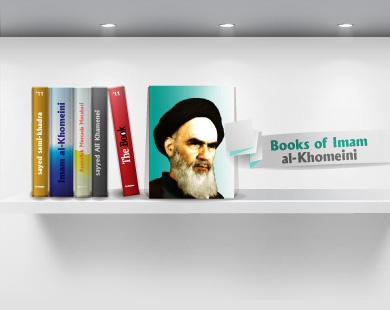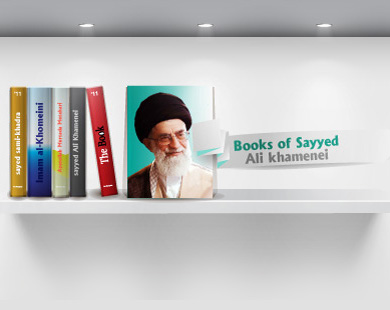As it is mentioned in many narrations, the holy verse "When your work is done, nominate (go and completing other worships)” means nominating the Commander of the Faithful for the Khilafa after finishing his call for Islam (as a confrimation for the general meaning of the verse).
After recalling from some Imams this explanation, Al Alousi says in the book “Rouh Al Maani” (the soul of meanings): those people read the verb nominate in a way that doesn’t show the meaning of nominating Ali bin abi Taleb but in a way that means showing enmity to him. Then he recalled what Al ZamKhashry says in the book Al Kashaf: Al Nawasib (haters of Ali) were able to translate this word in a way that shows that it is a command to hate Ali. [1]
Do you think that the Shiites need to change the reading of the verse in order to infer from it the authority of Ali?! Of course not, but this well-known reading is sufficient for the aforementioned interpretation because it says: If you have finished a task such as the mission of the message, start with another task such as the task of guardianship, and this is accepted as one of the pieces of evidence. We know that the Messenger of God (pbuh)- according to the well-known hadith of Al Ghadir and other hadiths circulated in the Sahihs and the Musnads - was in constant pursuit in this field.
But it is very unfortunate that fanaticism pushes a man of knowledge like “Al-Zamakhshari” to allow himself to say that the Nawasib can also interpret the verse as a command to hate Ali!! What poor expression is this about a person whom Al Zamakhshari believes in as the fourth caliph of the Muslims! Indeed, the pitfalls of fanaticism are bad!
The Mu’tazila scholar “ibn Abi Al Hadid” narrates in the “Explanation of Nahj Al Balagha”, narrated by Al Zubair bin Bakkar” who is a non Shiite man and not an enemy to Mouawiya but he left Ali and followed his opposers, as ibn Abi Hadid said. Al Zubair here recalls from ibn “Al Maghira bin Sha’ba” and says: I entered with my father to Mouawiya. My father used to visit him, talk with him, then turn back home and talk about Mouawiya and his knowledge, and feels amazed by what he sees from him. One night, he turned back and abstained from eating dinner. I saw him distressed and waited for one hour, so I thought that a misfortune had happened to us. So I said: why are you looking distressed tonight? He said: O my son, I return today from the most unbeliever and the most vile man. So I asked him : what happened? He said: I said to Mouawiya when we were alone: you get all the traits of being the commander of the faithful so if you show justice and spread goodness, you’ll be greater in value. If you give care to your brothers of Bani Hashem and keep good relationships with them, you’ll not have anything to fear. You will get in return the good fame and reward of that. So Mouawiya said: No way! No way! Which good fame will I get? When Akhu Taym (Abu Baker) had authority, he led with justice and did what he had to do, but when he died his fame died too. His name is only mentioned when someone says “Abu Baker narrates' '. Then Akhu Oday (Omar) had authority, so he made efforts and led for 10 years until he died and took his fame with him too. His name is only mentioned when someone says “Omar narrates”. But Ibn Abi Kabsha (God’s prophet) name is mentioned 5 times per day: “I bear witness to God that Mohammad is the messenger of God '', so what good work do you think will remain? And what fame stays after death, you who has no father? I swear to God that our end is only being buried”. [2]
If we concentrate on this narration, we will know the catastrophes that muslims face until the Umayyad family has the authority… Verily we belong to Allah and verily to him do we return.
O our God, relieve us of self-love, and fill our hearts with your love.
O God, you promise us with ease in times of distress… so provide muslims with ease at the time they suffer the conspiracies of enemies and the intrigues of the covetous. O God, increase your blessings upon us and give us the good luck to be among the thankful people!
Tafsir Al Noor, His Eminence Al Sheikh Mohsin Qaraati- Freely
[1] Rouh Al Maani, Part 30, p. 172; Interpretation of the Scout, part 4, page 772.
[2] Ibn Abi Al Hadid, Sharh Nahj Al Balagha,part 5, page 129.




















